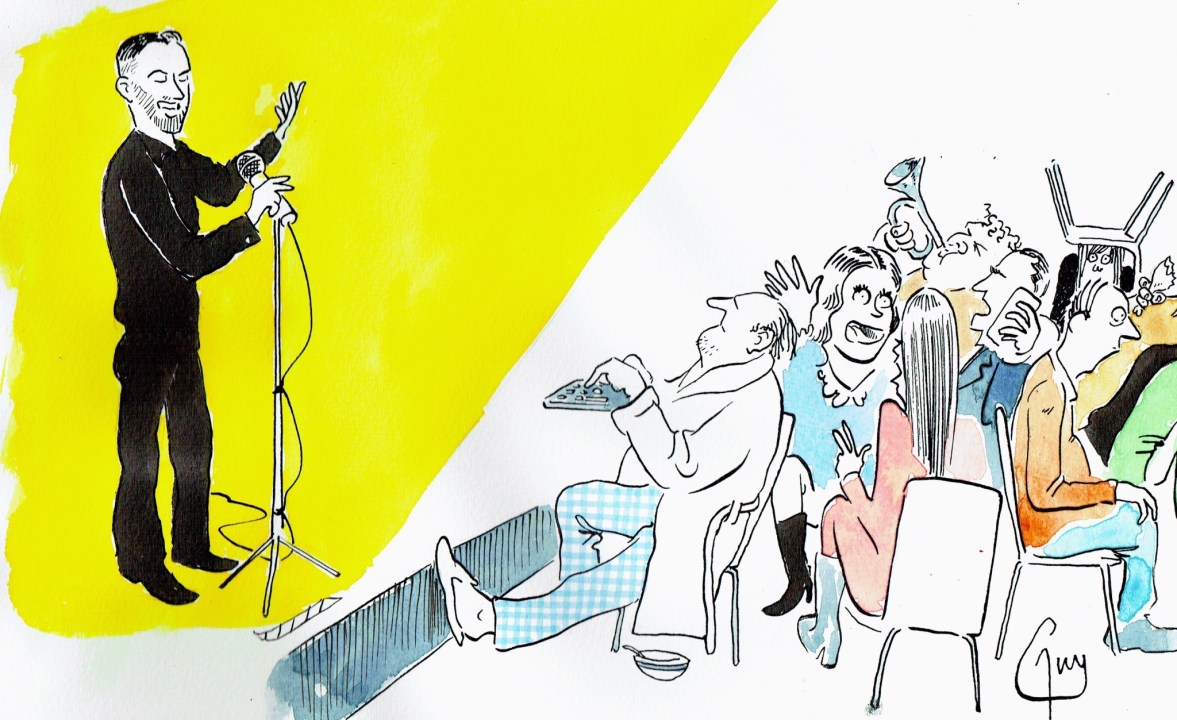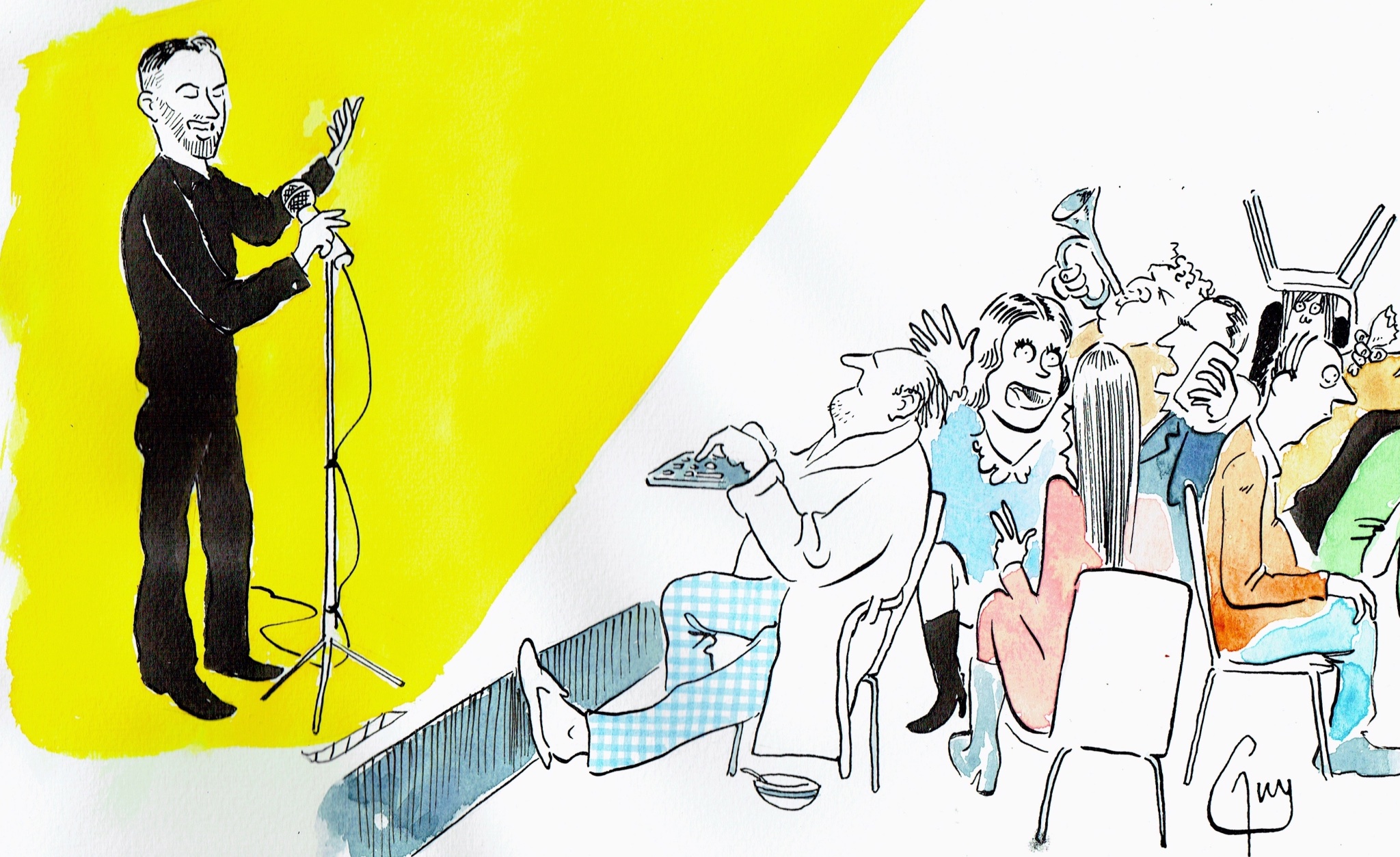Seen any good stand-up recently? It’s a loaded question, but if you have, there’s every chance you didn’t view it via terrestrial TV. You might instead have laughed at some brash American on Netflix, or a deeply un-PC comic on YouTube – or more likely still, a comedian sitting in the palm of your hand.
Over the past 12 months in particular, stand-up clips have been going down a storm on platforms such as TikTok and Instagram. The kind of clips which do well online have come as a surprise to some of the industry’s traditional gatekeepers. In a shock twist, it seems audiences still find stuff about the differences between men and women pretty funny (and we’re talking behavioural differences here, rather than biological or semantic ones). While some in TV might have thought crowd-work had become passe, it turns out seeing a hapless guy in the front row get slaughtered has never really got old.
The explosion of stand-up’s popularity on these short online ‘reels’ has been a revelation and given some highly talented comics, such as Jeff Innocent, a much bigger audience. With a huge back catalogue of brilliant material, Jeff started uploading clips to Instagram and the public lapped it up. Looking like a possible football hooligan – but in reality a liberal in a mixed-race marriage – Jeff expertly mines a bundle of surface contradictions and has gained a large and growing following, especially among the young. This underlines part of the problem conventional television has: if a producer had pitched a show about a guy in his sixties for a Gen Z audience they’d have been laughed out of Shoreditch House.
After we obsessed for so long over whether the public wanted left- or right-wing comedy, in a surprise twist of fate it turns out they didn’t specifically want either. They just wanted funny
The online success of people such as Jeff (maybe I should start spelling my name with a ‘J’) has prompted an industry scramble to build a following via clips. The comedy business may skew heavily left, but it can represent the very best of nimble capitalism when there’s money to be made. Where comics used to turn up to gigs with a hangover and relationship issues, they now rock up with a tripod and a fancy camera. After the show, instead of returning to their hotel room to drink the mini-bar dry, they’re rushing back to decide on the best font for their captions.
I’ve had a few clips ‘go big’, but in truth this technological development mostly favours people without young children. It’s very hard, upon returning home after three days on the road, to tell your wife you need to get on a Zoom with your social media manager to decide on the best title for a 40-second clip about bollock pain.
With this constant need to create content, there’s no doubt the young generation of comics coming through are the hardest working of all time. These guys are generating output night and day, where club comics like me used to do just 20 minutes’ work three nights a week then try to convince our other halves that getting pissed with the punters after was ‘networking’.
I worry for younger comic’s mental health, as the vast majority of clips go for very little and the ‘feedback’ is non-stop. Even the positive comments can leave you scratching your head. Recently, a viewer enjoyed a clip of mine on Facebook and commented: ‘Very funny, a lot better than some of the so-called pros.’ Evidently me hosting Live at the Apollo wasn’t quite enough for him to think I’d hung up my teaching corduroy for good.
While stand-up clips are hot stuff, conventional TV comedy commissioning is going through a period of soul searching as it becomes harder than ever to make new approaches succeed. Topical formats have felt this more acutely than most. How can TV keep up with the fast-moving world of social media platforms, where someone can produce a Huw Edwards deepfake rap before your lawyer has even cleared the topic for discussion?
Commentators once asked ‘Can we get more political balance in topical comedy?’. Presented with that existential problem, the industry responded by saying ‘How about no topical comedy at all?’, and proceeded to cancel anything which didn’t involve a celebrity road-trip.
All of which leaves topical comedians with fewer and fewer places to ply their trade. Comics appearing on GB News initially got a bit of stick, but the industry will soon wake up to the fact that these kinds of channels will become the go-to places for jokes about current affairs. In a way, rolling news discussion formats are the closest televisual entity to social media; they too are constantly in the market for content and give lawyers nightmares.
It’s ironic really that after we obsessed for so long over whether the public wanted left- or right-wing comedy, in a surprise twist of fate it turns out they didn’t specifically want either. They just wanted funny. And now they have it, via a phone and some clever algorithms which know their sense of humour better than a partner of 20 years. Those of us who still lean towards legacy media have a huge fight on our hands to keep up.







Comments